-
Received the best award at the 65th National Historical Studies History Content ContestAuthor : 관리자Date : 2022.11.03Hit : 332
-
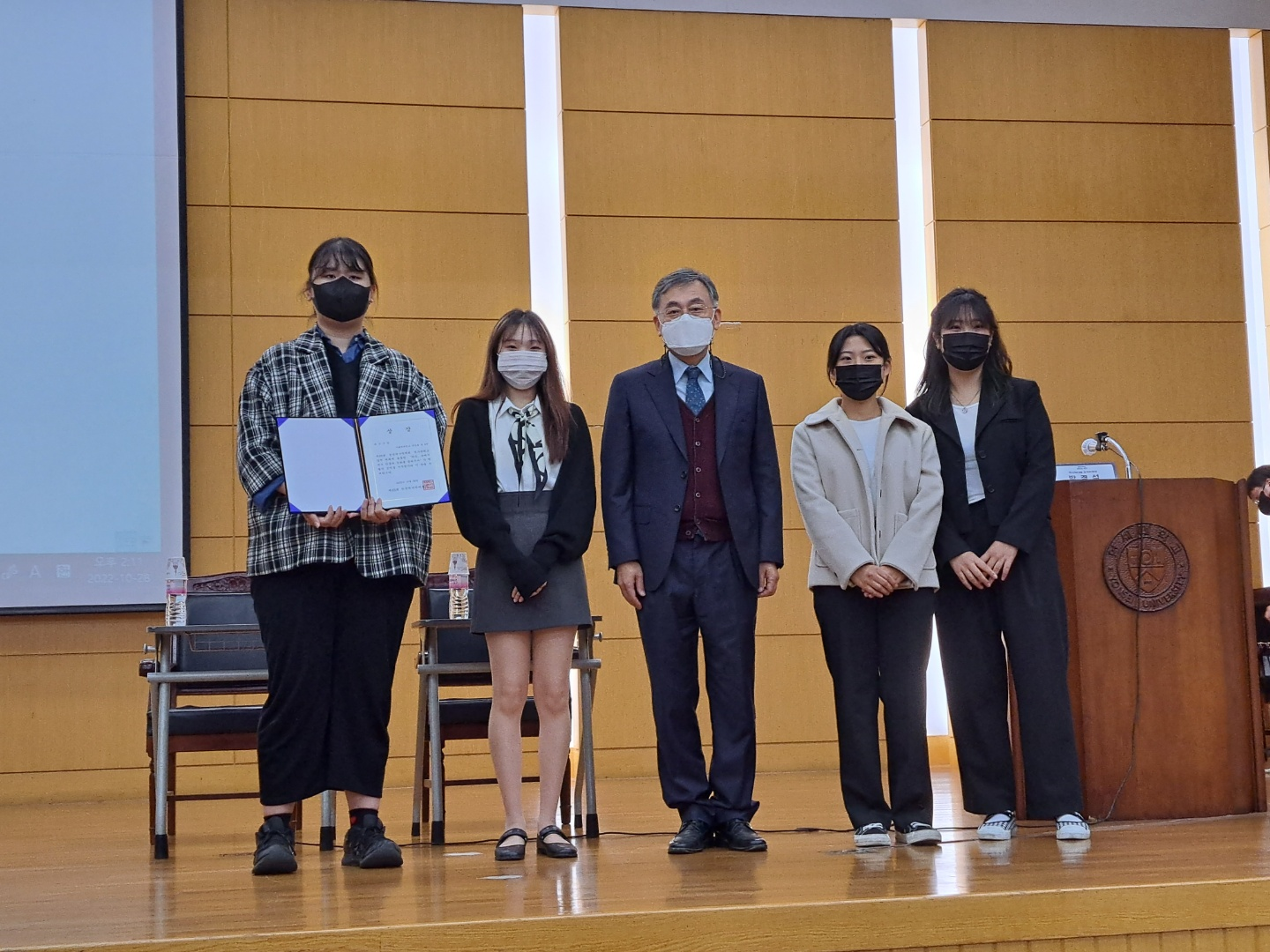
What is the National Historical Studies History Content Contest?
It is an academic conference hosted by the National Historical Society Council and supervised by the Historical Society. This year, the 65th National History Conference was held as a large-scale academic conference in which all history-related educational organizations at home and abroad participate, regardless of Korean history, Eastern history, or Western history. Besides the above, the History Content Contest is also held for undergraduate students to popularize history and nurture the next generation of academics. The 65th National History Contest History Content Contest was held on Friday, October 28, 2022, at Yonsei University Baekyanggwan Auditorium.
The Catholic University of Korea's Department of Korean History Haerang
"Haerang" is an academic society of the Catholic University of Korea's Department of Korean History with a long tradition. The society comprises 11 members, centered on president Kang Seonghee (National History, 20). Major activities include discussions, academic field trips, and participation in the Chaoreum academic festival in the Department of Korean History. Haerang has been submitted works for the third year since 2020 at the National Historical Studies History Content Contest, and won the Encouragement Award in 2021, and the Grand Prize this year.In this year's 65th National History Contest History Content Contest, the class of 2020 from the Department of Korean History participated, including Kang Seonghee, Song Jiwoo, Kim Soyul, and Jang Eunhee.
Academic and culture bloom in Dasan, a place of exile
The theme of the works Haerang submitted this year is "Dasan, study and culture blossom in a place of exile." There are two intentions in this video.First, it aims to present materials that can provide a systematic and comprehensive understanding of exile types, life, and culture in the Joseon Dynasty. The public generally perceives exile as nothing more than a punishment for sending sinners to an exile place. Some are only interested in the exile life of specific historical figures. Therefore, we intend to help a comprehensive understanding of exile punishment and culture by organizing punishment's grades through the name of the crime, exile method and location analysis, distribution of exiles nationwide, and exile life and culture.Secondly, we wanted to highlight the paradoxical aspect of the exile punishments and the exiles' contribution to the cultural development of the Joseon Dynasty. The general public perceives exiles negatively, considering them only as "criminals sentenced for committing crimes." That is why we aimed to change this universal perception. Exiles were sentenced for various reasons, including factional confrontation, ideological conflict, and differences in religious beliefs (such as the persecution of the Catholic Church). There were even political prisoners and ideological prisoners who were innocently sentenced to exile. Some of those sentenced to exile had a high level of academic and artistic ability, and they developed their academic and artistic depth through the experience of exile. In short, it can be viewed that the exiles sometimes played a role in promoting the spread and exchange of knowledge and art in the periphery.Therefore, we focused heavily on introducing the developmental aspects of culture, such as knowledge and art, that the exiles achieved through their life in exile rather than the punitive aspects.
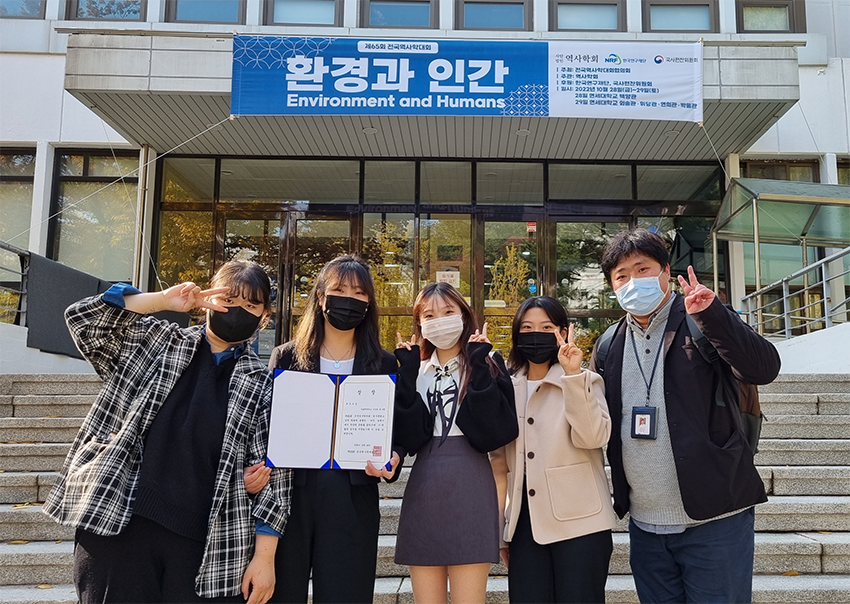
Thoughts
Since we won the award last year, we participated in this competition with a heavy burden and a strong will to win the excellence award. At first, we were afraid that we might end up introducing the well-known figure Dasan Jeong Yakyong again without anything to take note of. While thinking about this matter, we aimed to change people's perception of exile by focusing on the "exile" itself rather than focusing on the character. After we decided on the subject, the filming went smoothly. I want to thank the professors of the Department of Korean History at the Catholic University of Korea who helped us a lot, as well as Baengnyeonsa Temple, Dasan Museum, and Mr. Yoon Dongok, the head family of the Haenam Yoon clan in Jeollanam-do. We are really grateful to receive the award this year because it was unexpected. I hope people change the way they think of exile after watching this video. Haerang will keep on working for historical development. Thank you.
Video
Video link: https://www.youtube.com/watch?v=LF1zbgyqWmg
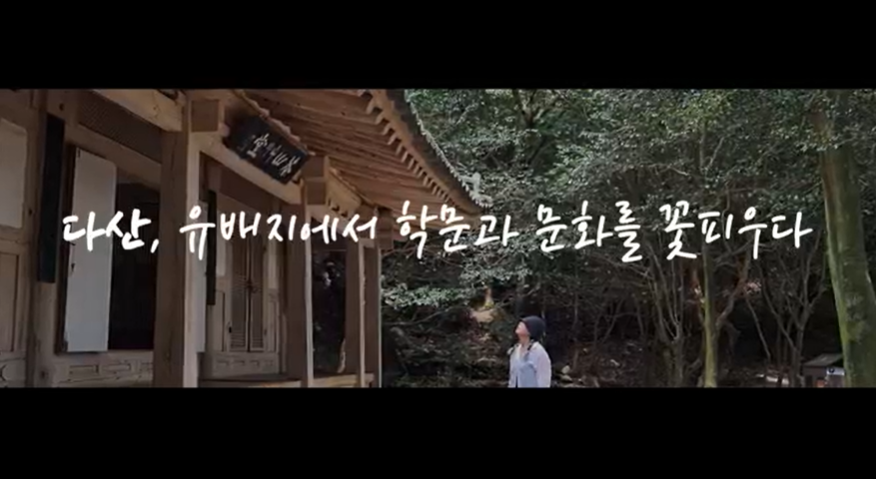
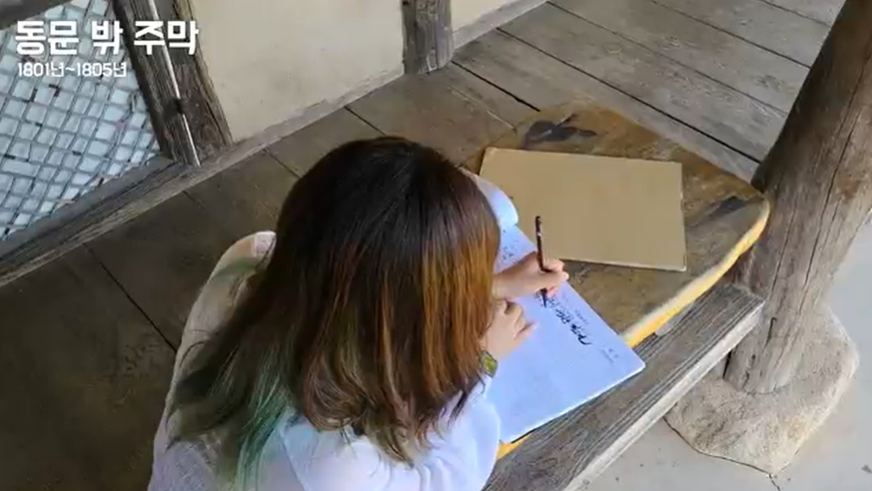
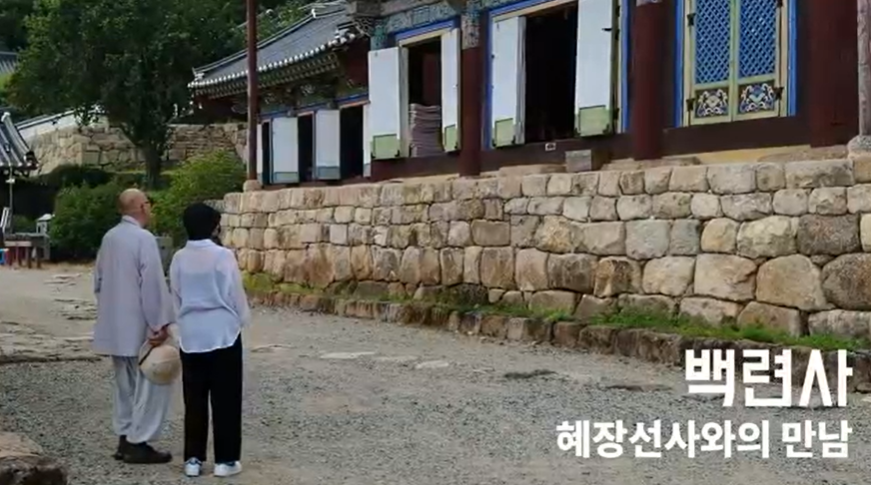
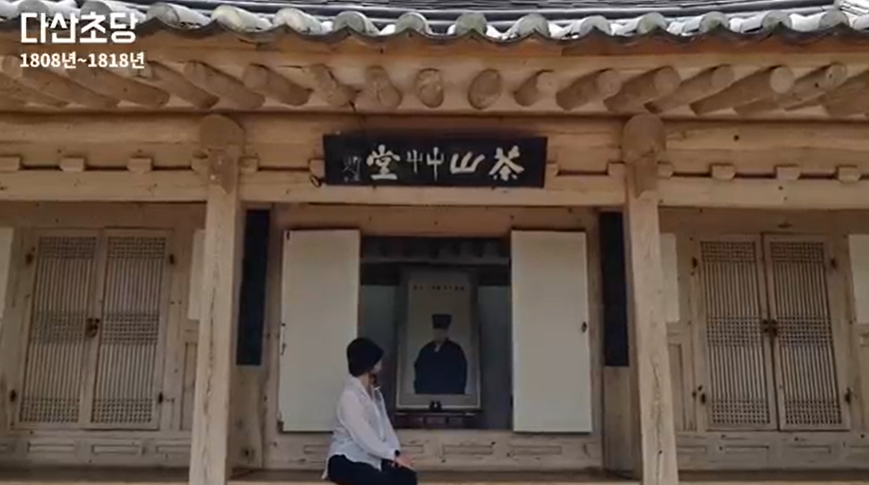
-
Attachment File

